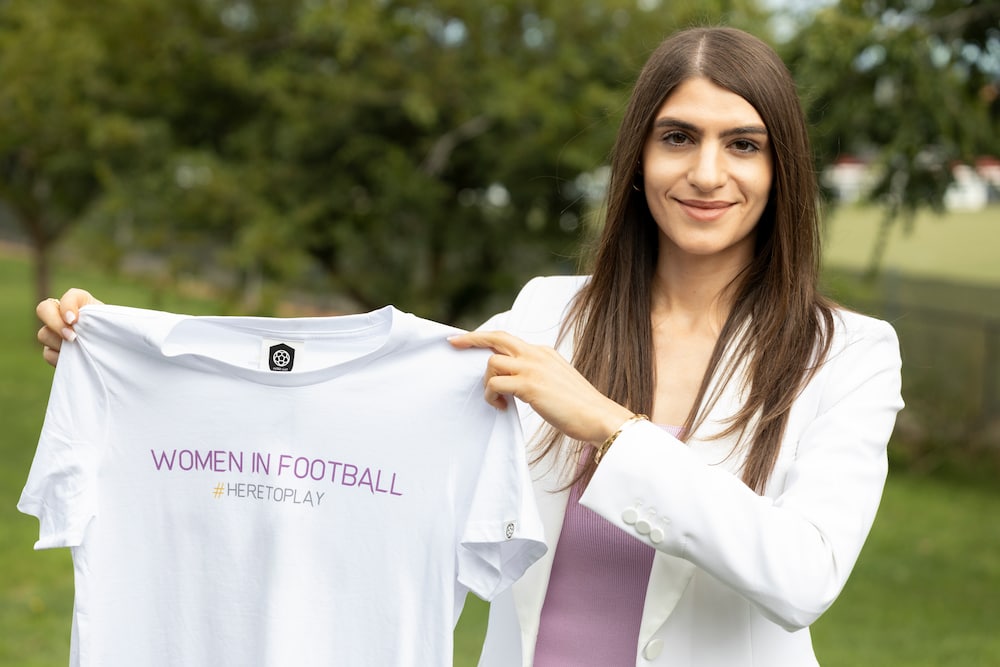Louise Taffa said she started playing “the world’s game” at age five as a Cooma Tiger in an effort to emulate her cool older brother. By age 15 she was good enough in her own right to play for the men’s under 18 team.
Louise means “absolutely no disrespect to women” but says the experience made her faster and improved her decision-making skills.
“I was used to being one of the fastest and then I started playing with the men and I just got smoked up the wing,” Louise said.
“But all the boys were really supportive. It was just fun.”
Louise doesn’t need to add a disclaimer; in the 10-plus years since those playing days, the majority of her work has empowered and promoted women footballers.
As a journalist, Louise has co-authored a book on female entrepreneurs, worked as a media assistant in the W-League, became a board member of Women in Football, and created a smash hit Instagram account dedicated to young female footballers.
“I created my own football account dedicated to young players, because I was really interested in helping them along,” she said.
“Young players always provide excitement and it’s refreshing to see them.
“I just fell in love with the idea and started giving them coverage and my Instagram took off.”
Louise Taffa’s broadcast career took her to Melbourne where she joined Football Nation Radio as an inaugural member and co-hosted with well-known broadcaster George Donikian, before being headhunted by the BBC.
“One of my social media contacts recommended me to the BBC and now I am a contributor,” Louise said.
“I’ve worked on the FIFA Men’s World Cup, FIFA Women’s World Cup and made some other appearances to talk about Australian football,” Louise Taffa said.
Now she is advocating for local women and girls involved as administrators, volunteers and coaches, to join other teams from around the country, for a Women in Football Tournament and “end-of-season trip” at the NSW Central Coast.
Running from 11-12 September in Tuggerah, the Women in Football Tournament is a combined tournament, party, networking event and celebration of the growth in the women’s game.
The winners will be awarded the Waltzing Trophy, named after the 1975 women’s team that placed third in the inaugural Asian Cup for women, but which has not yet been recognised as an Australian team even though the team competed as Australia.
The lower-placed teams will compete in parallel for the Pat O’Connor Trophy, named after the captain of that team.
Three Women in Football Awards will be awarded, supported by the NSW Government, in three categories for volunteer, media, and emerging leader.
Louise hopes the weekend will inspire women to take on leadership roles in the game and is reflective about her own experience in the game.
She said her playing days came to end because of her parents’ belief there was no money in it for professional women.
“It was hard to give it up,” Louise Taffa said. “Because I loved football and I was good at it.
“But it was a very different time when you didn’t really have many options; you didn’t really have the support and it’s not as big as what it is now.
“I think younger girls are very lucky, so many options and it’s funded.
“Even the Matildas only in the past 12 months have been able to make it fully professional.
“They can play the W-League here and then bridge the gap over in Europe or America and continue to earn money all year round.”
Further information, including entry forms for the tournament and nomination forms for the Awards can be found at womeninfootball.org.au



